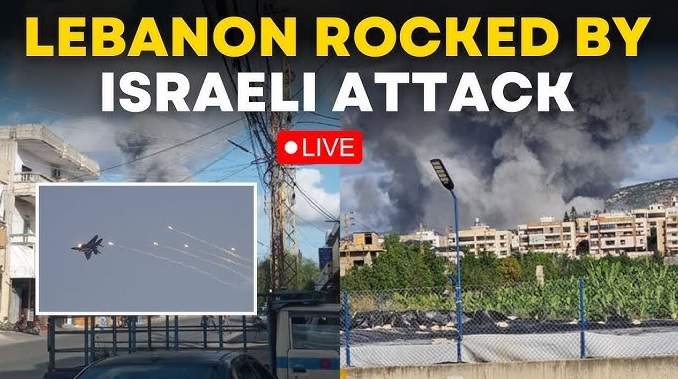
Israel’s complex and deadly attack on thousands of Hezbollah pagers and handheld radios across Lebanon appears to have been meticulously mapped out, writes ‘The Washington Post’.
Israel, which rarely comments on its intelligence operations abroad, has neither claimed nor denied responsibility for the attack, which continued into a second day Wednesday as more devices exploded across Lebanon. The Israelis did not inform the United States about the specifics of the attack before it took place but told Washington afterward through intelligence channels, according to two U.S. officials. Like others in this story, they spoke on the condition of anonymity to discuss sensitive matters.
Hovering over the unprecedented operation was a critical question: Why now?
How exactly Israel managed to pull off the operation — and whether it was even over — remained unclear. An adviser to Israel’s military intelligence directorate and a former senior commander in Shin Bet, the country’s internal security service, assessed that agents may have taken control of the beeper supply chain, emptied the devices’ contents and filled them with small amounts of explosives. Once that was complete, he told The Washington Post, there would have been limited time to act: “The level of suspicion is high, and it takes only one to explode [unintentionally] for the operation to be burned.”
Other former Israeli intelligence officials echoed that view, saying such operations — months, if not years, in the making — have a brief shelf life after being put in motion. One senior former Israeli official with knowledge of the operation said there was a risk that the devices were going to be discovered. “It was a ‘use it or lose it’ moment,” he said.
In the case of the exploding pagers, Hezbollah’s decision to switch to what it thought were more secure lower-tech devices after a wave of targeted Israeli assassinations probably provided a window of opportunity, Oded Eilam, a former senior Mossad operative who oversaw international counterterrorism operations explained.
“You need the minimum [amount of time] between installation and pushing the button,” he said. Strategic considerations, such as whether the operation is likely to land with maximal impact, need to be balanced against the risk of the operation being compromised, he said, describing the attack as “Hezbollah’s Pearl Harbor.”
But it was not immediately evident if the operation was intended as a first salvo in a full-scale conflict or a warning to Hezbollah about the potential costs of such a confrontation.
“We are at the start of a new phase in the war,” Israeli Defense Minister Yoav Gallant told troops Wednesday at the Ramat David air base in Haifa. “The center of gravity is moving northward.”
Hezbollah began launching attacks against Israel on Oct. 8 in support of Hamas and has vowed not to stand down until a cease-fire in Gaza is reached. As ambulances raced again through the streets of Beirut on Wednesday, the militant group promised a “reckoning” for Israel.
In neighboring Arab states, already on edge after months of intensifying strikes and counterstrikes along the Israel-Lebanon border, intelligence and security officials were rattled by the latest provocation.
“We were already well up the escalatory ladder,” said one regional official. “This was a big gamble by Israel.”
Israel Defense Forces Chief of Staff Herzi Halevi approved “offensive and defensive” plans for the northern border, the military said in a statement Wednesday. Israeli military radio reported that the army’s 98th Division would be transferred from Gaza to the north.
Washington appears limited in its ability to constrain its closest Middle Eastern ally. White House officials were outraged by Israel’s assassination of Hamas leader Ismael Haniyeh in late July, at a pivotal moment in cease-fire and hostage release negotiations. In April, Pentagon officials expressed frustration over not being notified in advance of an Israeli strike that killed two senior Iranian commanders near a diplomatic facility in the Syrian capital of Damascus.
The exploding devices were meant “to cause panic, and stress and shock” within Hezbollah, said former Mossad chief Danny Yatom, demonstrating Israel’s ability to breach even the group’s most secure lines of communication.
“It’s an operation that does not stand by itself,” he said. “It’s an operation that might start a more decisive war in Lebanon.”
…Describing the attack as “Hezbollah’s Pearl Harbor” puts some questions. It should remember that after the Japanese attack on USA Pearl Harbor, Japan was defeated four years later. Does “Hezbollah’s Pearl Harbor” mean that Israel will also be defeated by Hezbollah some time later?
read more in our Telegram-channel https://t.me/The_International_Affairs

 10:29 23.09.2024 •
10:29 23.09.2024 •






















